Project: Precarious Provenance – Human remains from Africa’s colonial past before 1919 in scientific collections of Baden-Württemberg
In addition to a large number of objects, Baden-Württemberg’s scientific collections also retain unprocessed human remains from Africa. In our collaborative project, we explore human remains which are presumed to predate 1919 and to originate from Africa. Initial estimates were of about 130 unprocessed human remains, but in the meantime, despite only rudimentary evidence, the number has been revised upward to 174. The related historical documents, such as inventory and entry books, are often incomplete and sometimes contain unspecific terms such as “non-European”.
In addition to Africa, other regions of the world also need to be considered as places of origin. The aim of the project is to determine the origin and clarify the paths of origin of these human remains as a basis for repatriation to the respective community of implication. Thereby, historical data will be collected, especially in the field of network research, which will then be made available for further investigations. Additionally, the potentials of historically existing links between South-West German institutions will be exploited for the current-day transfer of knowledge.
The project "Precarious provenance"
At the initiative of the Ministry of Science, Research and the Arts, several institutions storing cultural property have now joined forces to systematically investigate the origin of the unprocessed human remains in a collaborative project. This excludes the processed human remains held at the Linden Museum, such as a skull drum. The project “Prekäre Provenienz – Menschliche Überreste aus dem kolonialen Erbe Afrikas vor 1919 in wissenschaftlichen Sammlungen Baden-Württembergs” (“Precarious provenance — Human remains from Africa’s colonial past before 1919 in scientific collections of Baden-Württemberg”) is funded by the German Lost Art Foundation and the Ministry of Science. It is headed by the Museum of the University of Tübingen MUT, further project partners are the Osteological Collection of the University of Tübingen, the Linden Museum Stuttgart, the State Museum of Natural History Stuttgart and the State Museum of Natural History Karlsruhe. Associated partners of the project are the Albert-Ludwigs-Universität Freiburg im Breisgau and the Arnold Bergstraesser Institute for Cultural Studies (ABI).
In our project, we collect historical data, especially in the field of network research. This basic research will first investigate the received information, files, inventory books and archival records as well as explore the former networks. Furthermore, the potentials of the historical existing connections between South-West German scientific institutions will be exploited for the current-day transfer of knowledge.
The collaborative research has great potential in many respects: The transfer of knowledge between the participating institutions allows synergies to be created. Research is carried out in a coordinated and structured manner for concurrent and co-ordinated groups, thus avoiding double research and conflating resources. It is expected that the records of the project partners provide additional information on their collection, as well as on human remains which were often part of various collections. The network also provides an ideal starting point for researching actors and reconstructing their networks.
A preparatory working session on 16 September 2020 served to plan the project proposal, which was submitted to the German Lost Art Foundation and approved. The project started on 1 September 2021 and the first working session took place on 27 October 2021 at Schloss Hohentübingen. After the first project phase, which was scheduled for one year, the project was extended for another two years until 31 August 2024. The second working session on 5 July 2022 was held hybrid, at Hohentübingen Castle and with participants connected online. The project came to an end at the end of August 2024. On Monday, July 8, the Museum of the University of Tübingen (MUT) hosted a final conference in the Pfleghofsaal.
Statement of the Project Advisory Board
At the conclusion of the “Precarious Provenance” project, the advisory board – consisting of Julie Likondem Lekeufack, Mèhèza Kalibani, and Flower Manase – identified challenges in colonial provenance research and made recommendations for future projects in this field.
Project funding
The project is funded by the German Lost Art Foundation and the Ministry of Science, Research and the Arts of Baden-Württember.
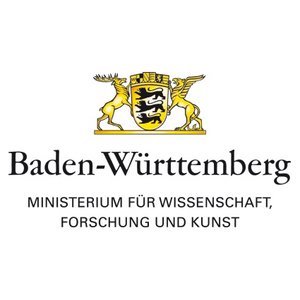
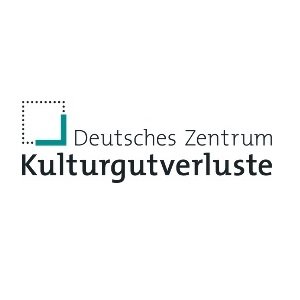
Project partners

Museum of the University of Tübingen MUT
At the Museum of the University of Tübingen MUT, the topic of provenance research has been a focus in teaching and research for several years. In 2015, 70 years after the end of the war, a Studium Generale study-general series on the subject was launched.
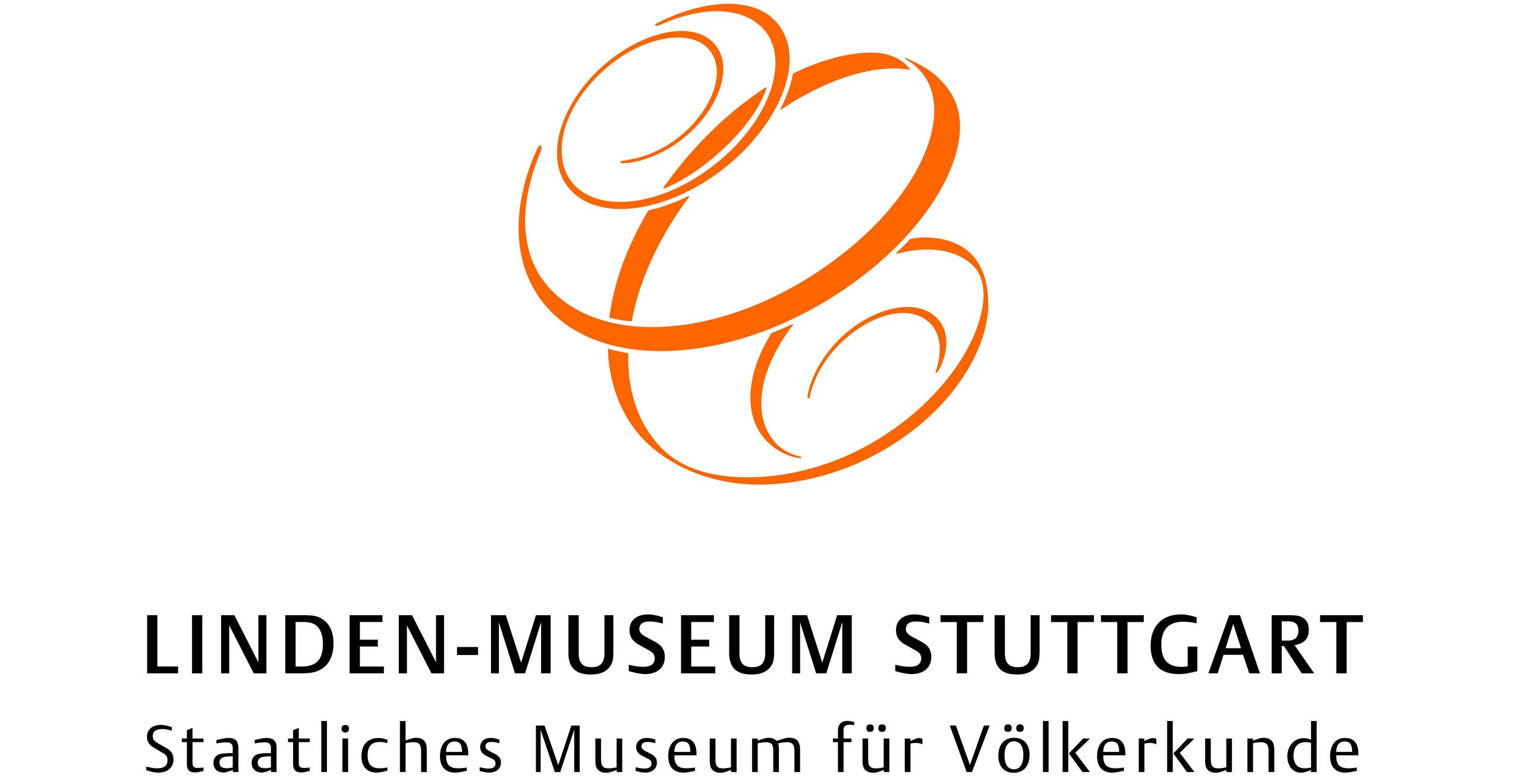
Linden-Museum
The Linden-Museum with its director Professor Dr Inés de Castro is a nationwide pioneer in dealing with colonial heritage. It is one of 25 pilot institutions that make their collection material from colonial contexts available online on the portal of the Deutsche Digitale Bibliothek (German Digital Library DDB) since 30 November 2021.

Osteological Collection and Senckenberg Centre for Human Evolution and Palaeoenvironment of the University of Tübingen
The Osteological Collection of the University of Tübingen is a research and teaching facility for investigating human skeletal remains from archaeological excavations. In the early 1920s, the collection was founded as a small private collection and was later expanded by finds from the University and the Monument Office.

State Museum of Natural History Stuttgart
Already 100-150 years ago, the great scientific interest in human bones greatly increased the anthropological collection of the Stuttgart State Museum of Natural History (SMNS). Private collectors, colonial officials and anthropologists handed human bones to the SMNS either directly or via the Linden-Museum in Stuttgart.

State Museum of Natural History Karlsruhe
The Zoological Collection of the State Museum of Natural History Karlsruhe (SMNK) contains a vertebrate collection which includes scientific evidence and displays preserved specimen of fish, amphibians, reptiles, birds, and mammals from all over the world, with mammal skulls from West Africa, feathered bird and mammal skins from East Africa as well as the collection of evidence of small mammals and bats from Baden-Württemberg.
Associated partners
The associated project partners from Freiburg carried out a joint project funded by the German Lost Art Foundation from May 2021 to August 2023: "Reziprocal interdisciplinary and transparent: Provenance research from the perspective of restitution in the colonial context". In addition to determining the provenance of approximately 120 human skulls from the African continent belonging to the collection of the Freiburg anatomist Alexander Ecker (1816–1887), best practice recommendations for the rapprochement between societies/communities of origin and the location of collections were one of the objectives of the project. On the occasion of the final conference on 26 and 27 April 2023, the practical policy recommendations for dealing with human remains from colonial contexts were handed over to the Rector of the University of Freiburg, Prof. Dr. Kerstin Krieglstein, and the representative of the Ministry of Science, Research and Art, Dr. Margret Frenz.
The project involved the University Archive and the Uniseum Freiburg (Professor Dr Dieter Speck), the Arnold Bergstraesser Institute for Cultural Studies (ABI) (Professor Dr Andreas Mehler), the Africa Center for Transregional Research (ACT) in Freiburg (Dr Annika Hampel, Dr Anika Becher) and the Department of Biological Anthropology of the Faculty of Medicine of the Albert-Ludwigs-Universität Freiburg (Professor Dr Ursula Wittwer-Backofen). They also implemented an external advisory board of persons from communities of implication which was regularly informed about the project’s progress and assessed it critically and from a local perspective.
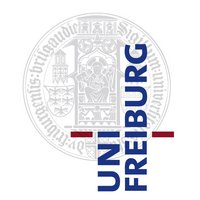
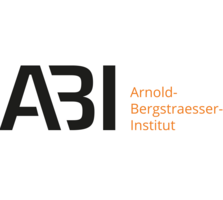
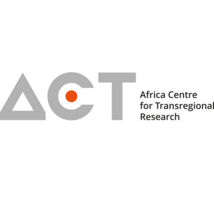
Network research database
The researched data within the project on individuals, institutions, and networks from the period up to 1919 in the colonial context, and especially regarding human remains from Africa, will be made available to all interested parties. They contain the usual data standards, such as the GND number, geonames or controlled vocabulary/thesauri.
Lectures/Interviews
- Annika Vosseler/Michael La Corte: "Talking colonial objects: The Palau student exhibition project", Joint Annual Conference of ICOM-UMAC (Committee for University Museums and Collections des International Council of Museums) and UNIVERSEUM European Academic Heritage Network 2024, "Shaping Transformation. University Collections in a Changing World”, Kustodie der Technischen Universität Dresden, 24.–29. September 2024.
- Fabienne Huguenin/Annika Vosseler: Presentation of the research results of the joint project "Precarious Provenance", Final Conference of the Joint Project, Tübingen, 8. Juli 2024.
- Annika Vosseler/Fabian Kurze: Poster presentation on the joint project ‘Precarious Provenance and Nodegoat’, Annual Conference for University Collections 2024, "Neue Rollen, neue Ziele? Universitätssammlungen im Spannungsfeld von Forschung, Finanzen und Politik" (New roles, new goals? Interplay of University collections between research, finance and politics), ETH Zurich and University of Zurich, 13–15 June 2024. 3rd place in the poster competition.
Annika Vosseler: The Long Shadow of the Colonial Era - The Joint Project "Precarious Provenance" at MUT on Human Remains* from Africa, Online lecture at the Speaker Network Provenance Research, 6.10.2023.
Annika Vosseler / Lucas Rau: "From Africa to Baden and Württemberg: How did human remains get into scientific collections during the colonial period?" Young Forum for Collection and Object Research "Die Wege der Objekte" (The Paths of Objects), Deutsches Schifffahrtsmuseum Bremerhaven, 28.9.-30.9.2023.
- Fabienne Huguenin/MUT, Inés de Castro/Linden-Museum, Bernd Grewe/University of Tübingen, Yasmin Nasrudin/Black History BW, Georg Wendt/City Archives Aalen, Katharina Dehner/The Fugger and Welser Experience Museum Augsburg: Podium Discussion: "Koloniales Erbe in der Region heute" (Colonial heritage in the region today), Studium Generale Series "Schwaben und die Welt. Globalgeschichte(n) einer Region (Swabia and the World. Global History(s) of a Region)", Chair: Christina Brauner, Tjark Wegner, University of Tübingen, 1 February 2023.
- Fabienne Huguenin: "Der lange Schatten der Kolonialzeit – Wie wir heute mit kolonialen Sammlungsgegenständen umgehen (sollten)" (The long shadow of the colonial era – How we (should) deal with colonial objects in our collections today), Memorial Site Association Concentration Camp Bisingen, 15 November 2022.
- Katja Schurr/Sümeyye Tarhan: "Provenienzforschungsworkshop für Schüler und Jugendliche – 'Prekäre Objekte in der musealen Vermittlungsarbeit'“, Annual Conference for University Collections 2022 "Brennpunkt Sammlung. Universitätssammlungen als Orte kritischer Auseinandersetzung", University Vienna, 8 October 2022.
- Fabienne Huguenin/Annika Vosseler: Poster presenation of the project "Precarious provenance", Annual Conference for University Collections 2022 "Brennpunkt Sammlung. Universitätssammlungen als Orte kritischer Auseinandersetzung", University Vienna, 6–8 October 2022.
- Fabienne Huguenin/Annika Vosseler: "Precarious provenance – human remains from Africa's colonial past before 1919 in scientific collections of Baden-Württemberg", conference of the Vereinigung der Afrikawissenschaften in Deutschland e.V. (VAD) on: "Africa–Europe: reciprocal perspectives" , panel: "Human remains from Africa in German university collections. Sensitivity, co-production of knowledge and the restitution perspective", Freiburg im Breisgau, 9 June 2022.
- Annika Vosseler: "The Difficulties of Finding Prephotographic Images in the Archives of the Berlin and London Missionary Societies", digital Conference "Archives of Print Culture in Southern Africa", University of Pretoria and WITS University, 19 May 2022.
- Annika Vosseler: "Entangled history. Material evidence of mission and colonialism", joint discussion series of the Berliner Missionswerk and the Evangelische Akademie zu Berlin on a postcolonial culture of memory, Berlin, 9 May 2022.
Annika Vosseler: “Precarious Provenance – Human remains from Africa’s colonial past before 1919 in scientific collections of Baden-Württemberg”, digital at the State Volunteer Conference Karlsruhe 2022 Baden-Württemberg, 11. March 2022.
- Interview with Prof. Dr. Ernst Seidl, Dr. Fabienne Huguenin and Annika Vosseler, conducted by the students of the workshop "MUT zur Herkunft. Workshop zur Provenienzforschung für Jugendliche" (Workshop on Provenance Research for Young People) .
- Fabienne Huguenin: "The Museum of the University of Tübingen MUT", Collecting Central Europe, University Collections Workshop with Urszula Bończuk-Dawidziuk, Fabienne Huguenin and Sofia Talas (online), 23. November 2021.
- Ernst Seidl/Fabienne Huguenin: : "MUT zur Recherche. Das Museum der Universität Tübingen und sein Umgang mit prekären Provenienzen" (The Museum of the University of Tübingen and its handling of precarious provenances), Science Day Tübingen 2021, Schloss Hohentübingen, Rittersaal, 2 July 2021.
Reporting on the project
- MUT-News, 20.07.2023: The MUT staff visit the Federal Foreign Office in Berlin
- Podcast "Schlossgeflüster" ("castle whispers"), 12.04.2023, episode 6: Woher und Wohin? Provenienzforschung im kolonialen Kontext – Tatjana Dörrer talks to Dr. des. Annika Vosseler
- Podcast "Schlossgeflüster" ("castle whispers"), 12.04.2023, episode 5: Geschichte(n) der Provenienzforschung zu NS-verfolgungsbedingt entzogenem Kulturgut – Jonas Brachmann talks to Dr. Fabienne Huguenin
- MUT-News, 12.04.2023: Podcast: "Schlossgeflüster" from Tübingen – double episode 5 and 6
- MUT-News, 05.04.2023: The MUT on Deutschlandfunk – Interview in the education magazine Campus & Karriere on the topic "Die Potentiale heben: Wissenschaftliche Sammlungen an den Universitäten" (Raising the potential: Academic collections at universities)
- Antonia Schnell/Karina Wasitschek: Schwieriges Erbe – Prekäre Provenienz. Die Herkunft von kolonialen Objekte: eine Sucharbeit in Archiven, in: AK Forum Alltagskultur in Baden-Württemberg (accessed: 10.11.2022)
- MUT-News, 29.06.2022: VAD Conference "Africa and Europe: Reciprocal Perspectives"
- MUT-News, 17.05.2022: Trilingual project page online
- MUT-News, 13.04.2022: Zum Tag der Provenienzforschung
- MUT-News, 06.12.2021: MUT zur Herkunft
- MUT-News, 01.11.2021: Prekäre Provenienz
- MUT-News, 20.09.2021: Verstärkte Recherche
- MUT-News, 10.07.2021: Science Day 2021
Courses
Current semester
- Annika Vosseler: Advanced Seminar "Einführung Provenienzforschung – Kultur- und Sammlungsgut aus kolonialen Kontexten" (Introduction to provenance research - cultural and collection items from colonial contexts) (WS 2023/24)
- Annika Vosseler/Michael La Corte/Leonie Braam (MHM Berlin): Excursion - ‘Theorien und Praxisbeispiele zur Ausstellbarkeit „sensibler Objekte“, am Beispiel von Human Remains’ (Theories and practical examples of the exhibitability of ‘sensitive objects’, using the example of Human Remains) (WS 2024/25)
- Annika Vosseler/Michael La Corte/Markus Schleiter: "Praxiskurs zur Konzeption und Gestaltung einer Digitalen Ausstellung: Zwischen Kolonialismus, Kunst & palauischen Werten – Die Tübinger Ethnologin Elisabeth Krämer-Bannow" (Practical course on the conception and design of a digital exhibition: Between colonialism, art & Palauan values - The Tübingen ethnologist Elisabeth Krämer-Bannow) (WS 2024/25)
- Annika Vosseler/Markus Schleiter: Practice Seminar: "Fragwürdige Provenienzen? Palau Objekte der ethnologischen Sammlung Tübingen: Praxis & Lektürekurs zur Konzeption einer dekolonialen Ausstellung II" (Questionable provenance? Palau objects of the ethnological collection Tübingen: Practice & reading course on the conception of a decolonial exhibition) (SoSe 2024)
- Fabienne Huguenin: Advanced Seminar "Provenienzforschung – Unrechtskontexte und Beispielfälle" (Provenance research - contexts of injustice and examples) (WS 2023/24)
- Fabienne Huguenin/Annika Vosseler: Practice Seminar "Wissenschaftlerin der Kolonialzeit? Recherchen zu Elisabeth Krämer-Bannow" (Scientist of the colonial era? Research on Elisabeth Krämer-Bannow) (WS 2023/24)
- Michael La Corte/Annika Vosseler: Project presentation and discussion on: "Provenance Research at the MUT and the project 'Precarious Provenance'", seminar: "Archäologie und Raubkunst: Forschung und Öffentlichkeit" (Archaeology and Looted Art: Research and Public), Dr. Stephan Blum, Institute of Prehistory, Early History and Medieval Archaeology, University of Tübingen (4 May 2023)
- Fabienne Huguenin: Advanced Seminar "Einführung Provenienzforschung – Kultur- und Sammlungsgut aus kolonialen Kontexten" (Introduction to provenance research - cultural and collection items from colonial contexts) (SoSe 2023)
- Fabienne Huguenin: Practice Seminar "Sensible Sprache in der Provenienzforschung und im Museum" (Sensitive language in provenance research and in museums) (SoSe 2023)
- Fabienne Huguenin: Advanced seminar "Einführung Provenienzforschung – Geschichte und Projekte" (Introduction to provenance research - history and projects) (WS 2022/23)
- Regina Keyler (UAT)/Annika Vosseler/Fabienne Huguenin: Practice seminar "Provenienzforschung – aber wie? Archivrecherche, Netzwerkforschung und Sammlungsgeschichte(n)" (Provenance research - but how? Archive research, network research and collection history(ies)) (WS 2022/23)
- Fabienne Huguenin: Project presentation and discussion on: "The Museum of the University of Tübingen MUT: Provenance Research", seminar: "'That belongs in a museum!' But which one? Looting and repatriating cultural heritage in Europe", Dr. Richard Legay, Institute of Didactics of History und Public History, University of Tübingen (21 July 2022)
- Fabienne Huguenin: Excursion to München, topic Provenance Research (SoSe 2022)
- Fabienne Huguenin: Advanced seminar "Einführung Provenienzforschung“ (Introduction to provenance research) (SoSe 2022)
- Annika Vosseler/Fabienne Huguenin: Practice seminar "Provenienzforschung – aber wie? Transkription, Metadatenerfassung, Netzwerkforschung" (Provenance research - but how? Transcription, metadata collection, network research) (SoSe 2022)
- Fabienne Huguenin: Advanced seminar "Einführung Provenienzforschung" (Introduction to provenance research) (WS 2021/2022)
Further information
- Dieter Grupp: Teaching module "Von der Südsee nach Tübingen: das Dilemma der Völkerkunde – Die ethnologische Sammlung des Museums der Universität Tübingen" ("From the South Seas to Tübingen: the dilemma of ethnology – The ethnological collection of the Museum of the University of Tübingen"), subject portal of the Baden-Württemberg education server, working group "Landeskunde/Landesgeschichte" (National History/Regional Studies) at the ZSL (Centre for Quality Education and Teacher Trainding) regional group in Tübingen
Further activities
- AK Provenance Research Baden-Württemberg
- Network Colonial Contexts
WG International Cooperation
WG Research Tools
- WG Thesauri
- AK Provenance Research
- AG Koloniale Provenienzen
- UAG Expert network on the care of human remains:
Proposal for dealing with human remains in the context of implementing the 3-road strategy on the documentation and digital publication of collections from colonial contexts held in Germany (Vorschlag zum Umgang mit menschlichen Überresten im Rahmen der Umsetzung der 3-Wege-Strategie) (18.8.2023)
Statement by the Expert network on the care of human remains on the establishment of a fund for the repatriation of human remains (Stellungnahme des Expert*innen-Netzwerks zum Umgang mit menschlichen Überresten zur Etablierung eines Fonds zur Rückführung menschlicher Überreste) (1.7.2024)
- UAG Expert network on the care of human remains:
- AG Koloniale Provenienzen
Advisory board

Mèhèza Kalibani
Curator of Colonial Past and Postcolonial Present, Foundation Decolonize Hamburg
Tel: +49 40 428 131 176

Flower Manase
Curator at the National Museum of Tanzania, Dar es Salaam, Tanzania
Contact information
Project Management and Processing
Student Assistant



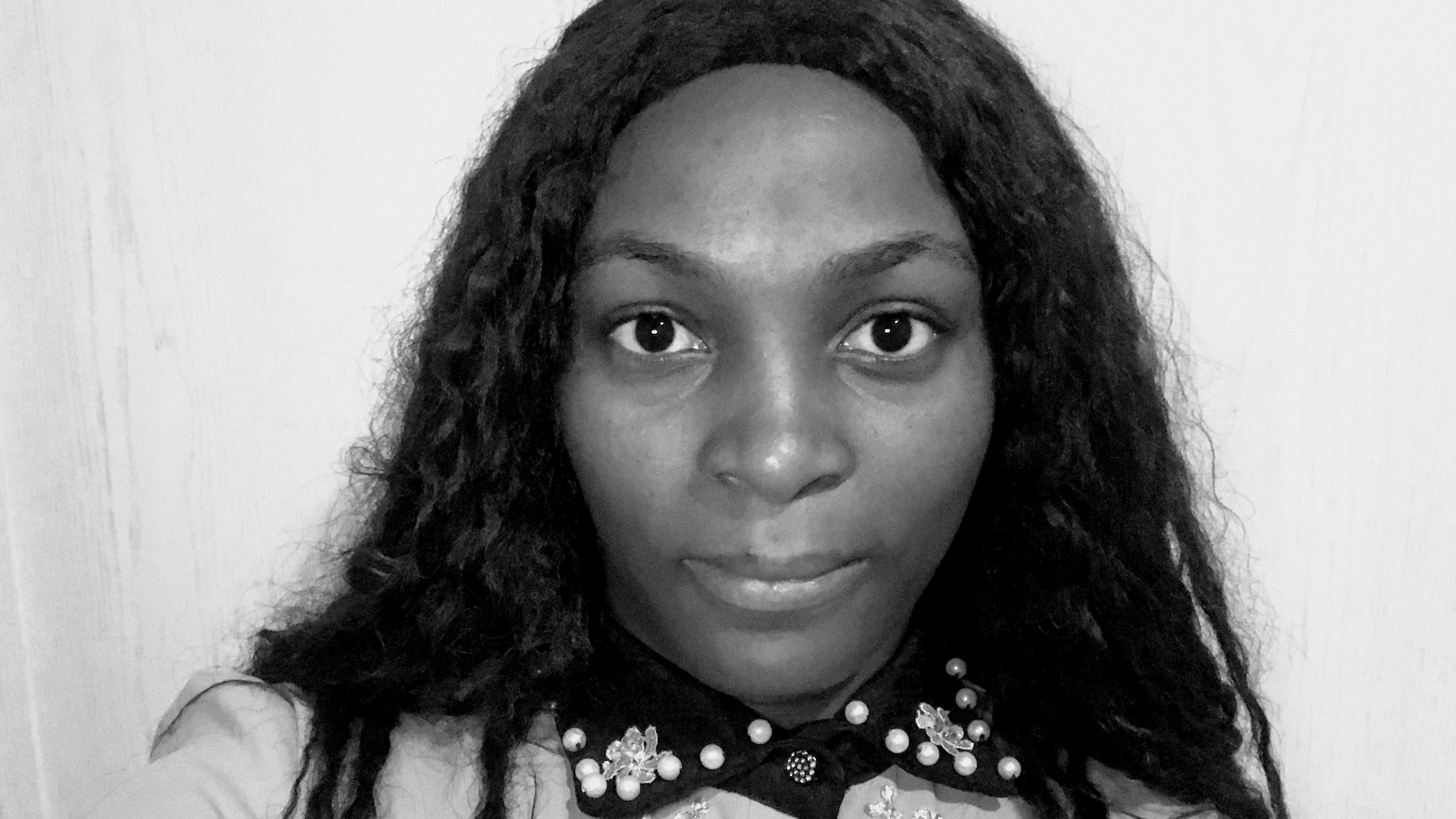
![[Translate to English:] © MUT | V. Marquardt](/fileadmin/_processed_/e/b/csm_Ernst_Seidl1_04a7ec80f6.jpg)
![[Translate to English:] © MUT | V. Marquardt](/fileadmin/_processed_/8/6/csm_Vosseler_2022_VMarquardt_627251730e.jpg)